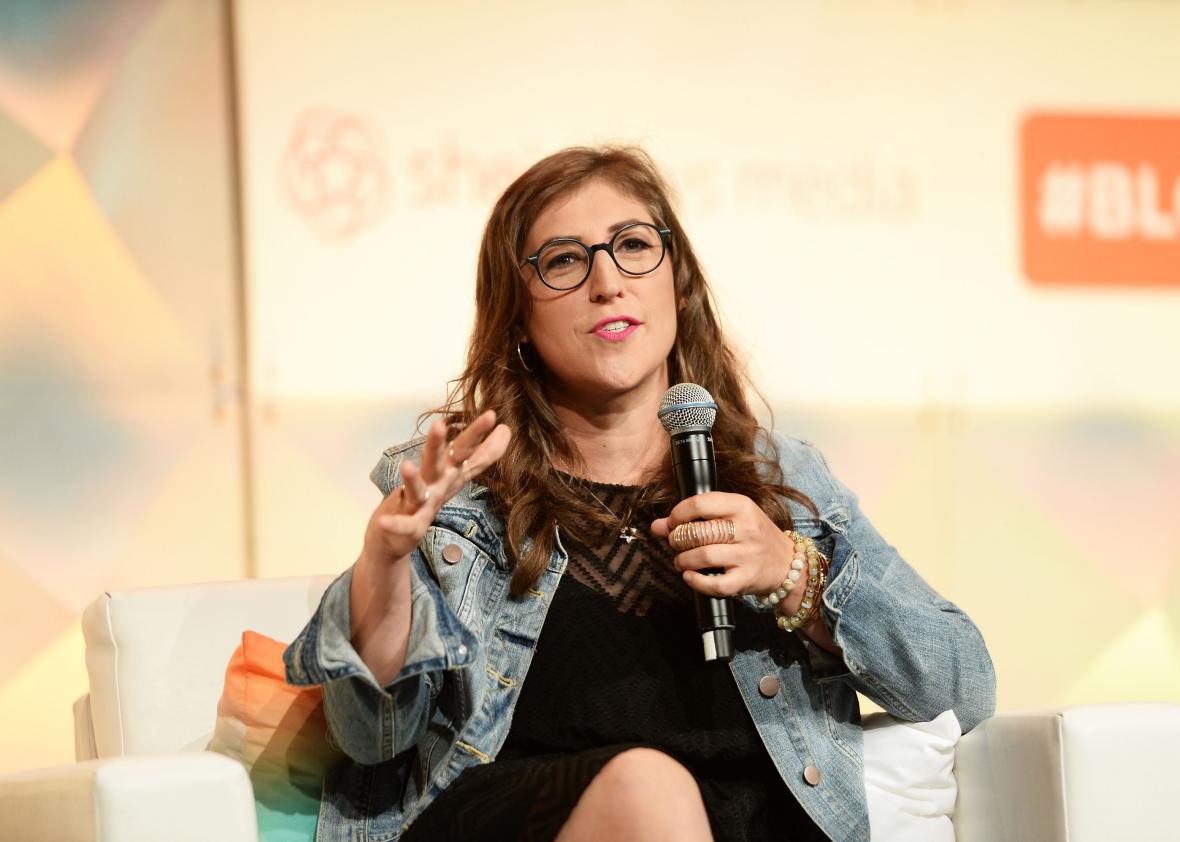Self-identified “old-school, fuddy-duddy second-wave feminist” Mayim Bialik has issued a second apology via Twitter after her New York Times op-ed, “Being a Feminist in Harvey Weinstein’s World,” received rancorous criticism for its veneer of victim-blaming. After an initial statement on Saturday denying that her intent was to suggest women were responsible for their assaults and a subsequent Facebook Live interview with the New York Times, the Big Bang Theory actress posted a statement on Wednesday that ends with the words, “I am truly sorry for causing so much pain, and I hope you can all forgive me.”
Bialik had written about the Weinstein accusations on her website, Grok Nation. But the brouhaha began in earnest with her op-ed in the New York Times, which was penned after exposés detailing Weinstein’s alleged harassment and assault of women opened the floodgates, and dozens more women came forward with stories of the producer’s conduct. Bialik’s piece started by recounting her experience with not being traditionally beautiful in the entertainment industry, and at first it seemed like it would be a worthy conversation-starter about how not fitting a powerful man’s definition of “sexy” might affect actresses’ careers. But when her essay addressed harassment, the actress’ words veered into victim-blaming tropes. While she acknowledged that “nothing—absolutely nothing—excuses men for assaulting or abusing women,” she also continued to suggest, “We can’t be naïve about the culture we live in.” And in an especially self-righteous line: “As a proud feminist with little desire to diet, get plastic surgery or hire a personal trainer, I have almost no personal experience with men asking me to meetings in their hotel rooms.”
To many readers, the implications that the women who were assaulted or harassed were not feminist enough, too eager to capitalize on their looks, or not protecting themselves by wearing Puritanically modest apparel (an idea that, by the way, directly contradicts the harassment related by Weinstein employee Emily Nestor, whose “frumpy” outfit in no way deterred the producer from making advances) played into the age-old narrative that often keeps women silent about such issues: that a man’s abuse of power was a consequence of the victim’s own failure to prevent it. The Twitter outcry to the op-ed was swift and strong.
Actress Martha Plimpton was so moved as to send the New York Times this polite yet searing critique: “With all respect to Mayim Bialik on her considerable accomplishments, the positioning of sexual assault and harassment in the entertainment industry as a special club for pretty girls is offensive.” Others faulted Bialik for making a narrative about others’ pain about herself.
The next day, Bialik posted a half-apology, half-defense on Twitter about how her words had been taken out of context. “God forbid I would blame a woman for her assault based on her clothing or behavior,” she wrote. She also positioned herself, Taylor Swift–style, as the victim: “It’s so sad how vicious people are being when I basically live to make things better for women.” In the subsequent Facebook Live chat with New York Times opinions editor Bari Weiss, she doubled down, expressing “regret that this became what it became,” lamenting how the shortness of the op-ed had made it difficult to flesh out her ideas. She again reiterated a conviction that assault is in no way tied to a woman’s behavior. Great, but that still leaves this question: Why even bring style of dress and behavior into the conversation in the first place?
By Wednesday afternoon, however, the actress and neuroscientist seemed to have recognized the harmful effects of her words and issued a seemingly sincere apology for the hurt she’d caused victims of assault. “I am motivated and driven to work hard to empower women,” she wrote. Hopefully next time Bialik contributes her perspective and personal brand of feminism, she’ll weigh her words a little more carefully.
